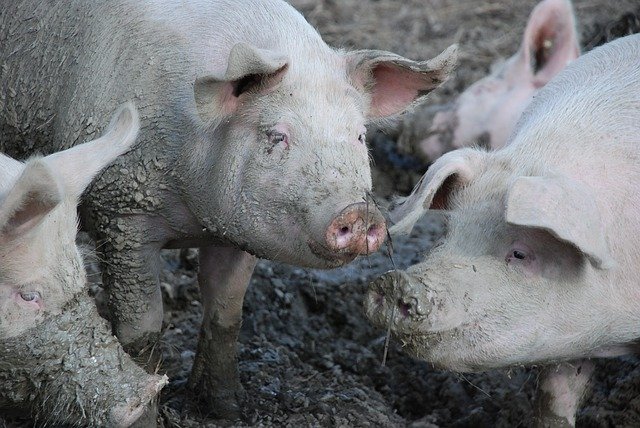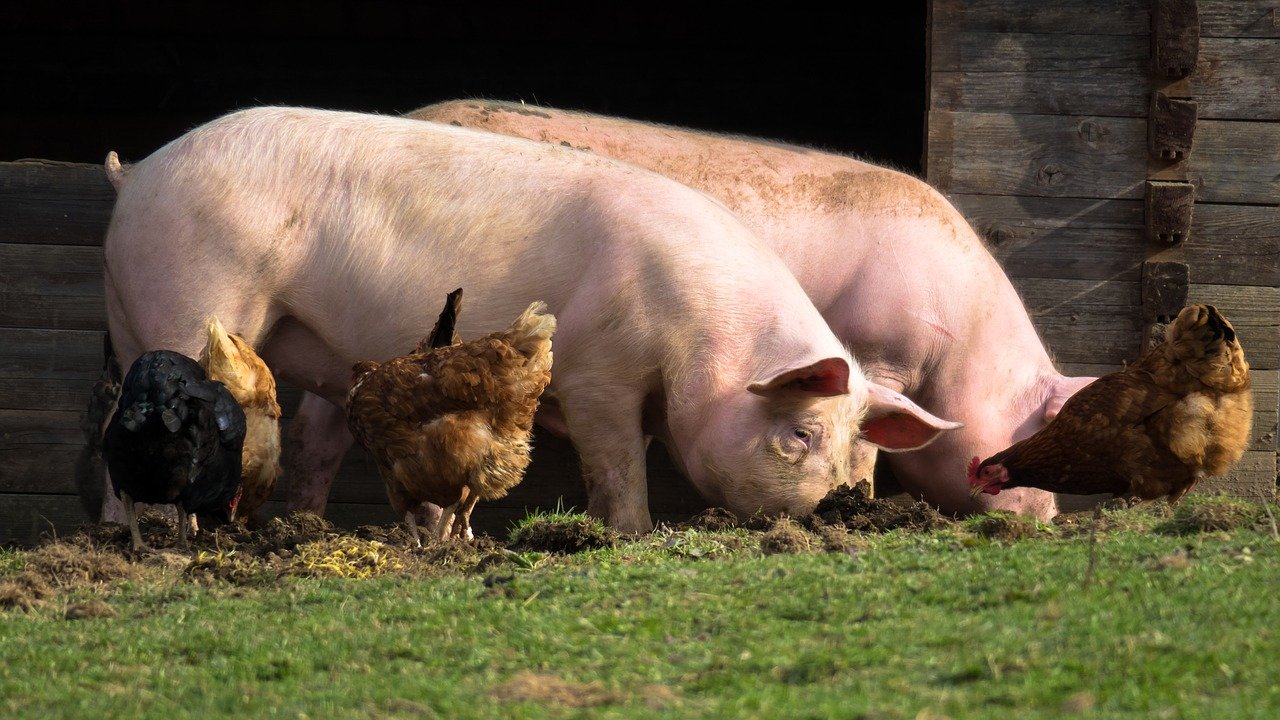Parasites in Pigs
Pigs are susceptible to parasitic infections, and when care is not taken, both internal and external swine parasites can negatively impact their health and the farmer’s productivity.
Here are the common ecto and endo parasites in pigs, and the infection they cause.
Ticks in Pigs
Ticks are of different types and they cause economic loss to the farmer.
They are numerous in the tropics and subtropics. They feed on the blood of their host.
When ticks are in the un-fed state, they are usually flat but when engorged with blood, they become spherical.
The weight of host blood taken in by ticks can be many times the weight of their bodies.
The saliva produced when sucking blood could be toxic since other diseases may be transmitted to the animals.
The damaged skin also serves as an entrance through which microorganisms can enter the body.
How to Prevent or Treat Ticks on Pigs
To prevent or get rid of ticks on pigs, you should apply highly active insecticides, mainly in the form of sprays, dips, and washes.
There are also natural tick repellents for pigs you can use for prevention only.
Insecticides such as Asuntol, Malathion, Lindane, Rotenone bacne, and Neguvon can be very effective to treat ticks in pigs.

Mites or Mange in Pigs
Mange is produced by a mite, Sarcoptes scabies var suis and it can be a serious issue for pigs and farmers to manage.
Two common types of mites affect pigs: Sarcoptes scabiei and Demodex phylloides.
Mange causes intense itching and pigs can be injured when they continuously rub themselves against hard objects.
The mites dig themselves into the skin of the animal, causing the skin to become dry, red and inflamed, and also scaly.
Mites infestations can lead to patchy hair loss in the affected area, especially in the ears, neck, abdomen, and legs.
The tissues and blood of the pig serve as their food. Swine could also have a lack of appetite while the lesions created to serve as an entrance for micro-organisms.
Treatment of Mange in Pigs
Antiparasitic preparation such as Vapona, Lindane, and Malathion applied as baths or showers and brushed into the skin are very effective in the treatment of mange in pigs.
Lice and Fleas in Pigs
Both of them are small wingless insects. Lice can be grouped into two; biting lice and sucking lice.
Pigs are parasitized by the blood-sucking lice. Lice and fleas in pigs symptom is an irritation caused by the feeding habit of the parasites.
Pigs respond to these symptoms by biting, scratching, and rubbing. Loss of appetite could result.
How to Treat Lice and Fleas in Pigs
Lice and Fleas in Pigs Treatment involves spraying or washing your pigs with suitable insecticides such as Asuntol, Ramos, Lindane, vapona, and Malathion. The use of ivermectin injection is also recommended.
There are also home remedies for lice and fleas prevention in pigs such as sevin dust, engine petrol waste, pyrethrum powder, kerosene oil, almond oil with rose geranium oil, etc.
Proper management of your pen and the environment, and reducing contact with infested areas can also aid in the prevention of fleas.
Flies in Pigs
These insects are widely distributed across the globe, and they also cause economic loss to farmers.
For example, flies can cause restlessness in pigs when they fly over their bodies.
Many of them also bite and suck blood and in this way, they transmit the infection from one animal to another.
How to control flies in a Pigpen?
To keep flies off your pigs, you can spray the pigs, their pens, and the external surrounding with suitable insecticides such as those recommended for lice and fleas or Bronco fly spray.
Treatment of flies in pigs is nothing much, proper hygiene should be taken into consideration.
You can also use homemade fly repellents such as a mix of white vinegar and essential oils such as peppermint oil, geranium oil, lemongrass oil, citronella oil, rosemary oil, eucalyptus oil, bitter orange, and clove oil.
Roundworms (Ascarids) in Pigs
Ascarids are common pig parasites, especially Ascaris suum. Roundworms eggs or larvae are consumed by pigs in contaminated food or water and they complete their life cycle in pigs.
Roundworms in pigs’ symptoms are poor growth and weight due to the feeding of the worms.
Roundworms can also cause diarrhea, coughing, constipation, Anemia, and a large abdomen in pigs.
Treatment of Ascaris in Pigs
Prevention is always better, and safer than cure so you should deworm your pigs regularly, and maintain hygienic pens and a farm environment.
Also, rotational grazing is important if you allow your pigs to graze, and biosecurity
Conclusion
Integrated parasite management strategies in pig pens, which combine the use of preventive medications, immunization, sanitation practices, and pasture rotation, can help maintain healthier pig herds and reduce the risk of parasitic infestations.







